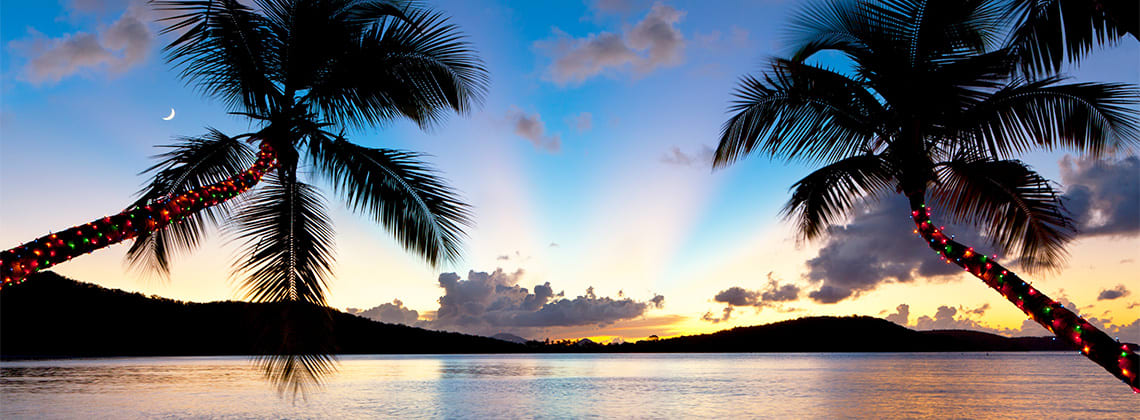Holiday traditions across every destination
One of the great parts of travelling is that you get to learn about different cultures and ways of life. With the holiday season upon us, we decided to round up the special festive traditions of our tropical destinations across the Caribbean and Mexico! From lively festivals to ceremonial songs and delicious food, read on for some of the holiday traditions in your favourite vacation destinations.
Want to enjoy these traditions for yourself? It’s not too late to book your holiday getaway. Check out our range of last-minute departures.
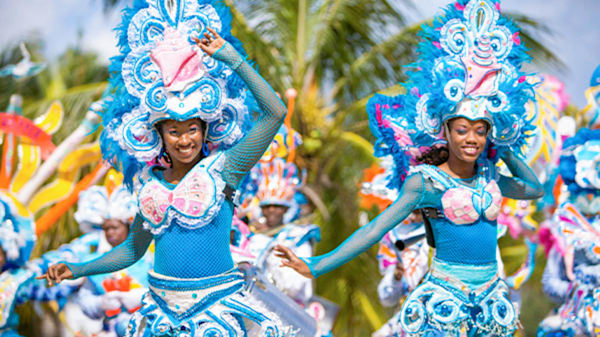
The Bahamas: Junkanoo
Junkanoo is one of the Caribbean’s most famous carnivals, taking place every year in The Bahamas on Boxing Day (December 26) and New Year’s Day (January 1). Locals dress up in colourful ornate costumes and parade down the street to the sounds of live music from early in the morning until late at night, celebrating the holidays as they dance and sing along. The carnival dates back to centuries ago and is one of the best ways to soak in the Bahamian culture. We recommend heading to Bay Street in downtown Nassau, which is located in the heart of the action and home to the biggest celebration across the islands.
Saint Lucia: Festival of Lights & Renewal
On the Caribbean island of Saint Lucia, the start of the holiday season is marked by the Festival of Lights & Renewal. The celebration takes place on December 13 to recognize the patron saint of light, Saint Lucy, as a symbol of light conquering darkness and good over evil. At the beginning of December, residents beginning decorating their homes with creative lanterns to “light the way”, culminating in the Parade of Lanterns on December 13 in Castries. There’s a Christmas show with songs and dancing, a fireworks display and even a lantern tradition where you release a paper lantern into the water while making a wish.

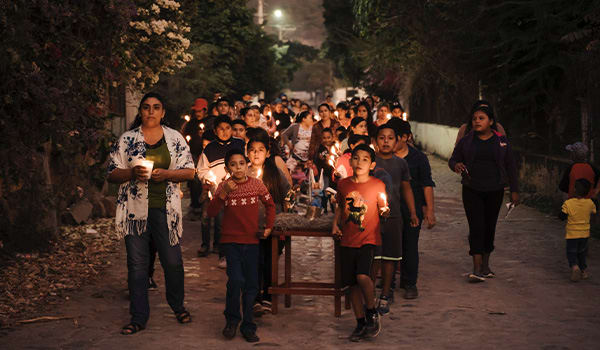
Mexico: Posadas
Translating to “inn” or “shelter” in Spanish, posadas is one of Mexico’s most time-honoured holiday traditions dating back hundreds of years. Every night for nine days, a group of people holding candles makes their way to a home that’s been designated as the ‘inn’, with a different home chosen every night. They sing a traditional posada song that switches between the participants asking for shelter and the ‘innkeepers’ telling them there’s no room. Eventually, after singing back and forth, the ‘innkeeper’ will invite the participants inside and they’ll celebrate over food and drinks with a pinata for the children.
Dominican Republic: Three Kings Day
While Christmas is an important holiday in the Dominican Republic, so too is a holiday known as Three Kings Day or the Epiphany, which is common in other Spanish-speaking countries. The tradition starts on January 4, when children will write letters to the Kings, similar to how kids in North America write letters to Santa Claus. The night of January 5, they’ll leave grass out for the Kings’ camels and treats for the Kings before waking up on the morning of January 6 to open their presents. The rest of the day is spent celebrating the end of the holiday season with family and friends!
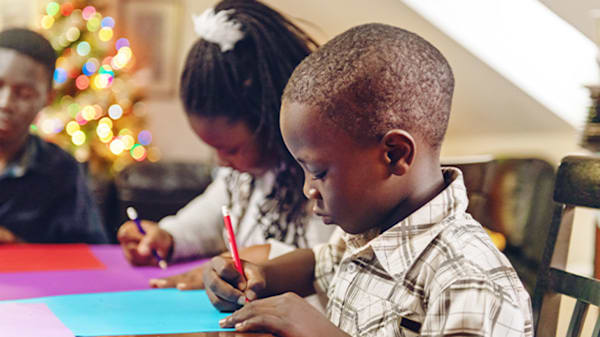
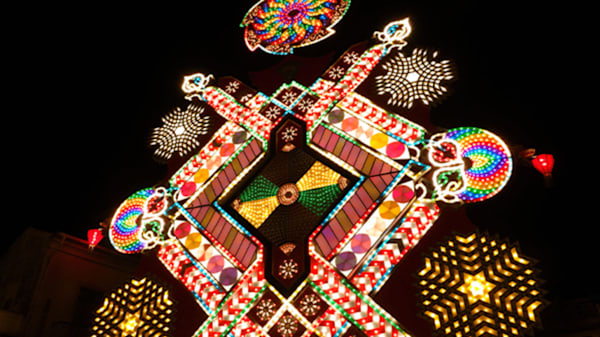
Cuba: Parrandas de Remedios
Parrandas de Remedios is one of Cuba’s biggest festivals and takes place between December 16 and December 26 – although the most exciting day of the festival without a doubt is December 24. Taking place in the historic city of Remedios just outside of Cayo Santa Maria, legend has it that the parade dates back to the early 1800s when a priest had children make as much noise as they could in the streets to ensure that none of the town’s residents missed midnight mass. Today, the festival features elaborate parade floats, music, dancing, drinks and an elaborate fireworks show! On December 24, the town transforms into a giant street party that lasts into the early hours of the morning.
You may also like
Topic

